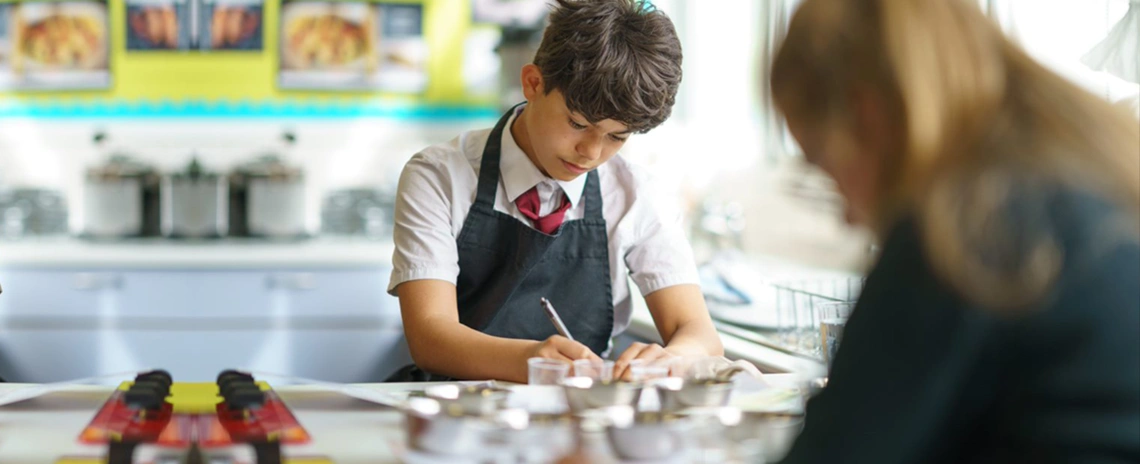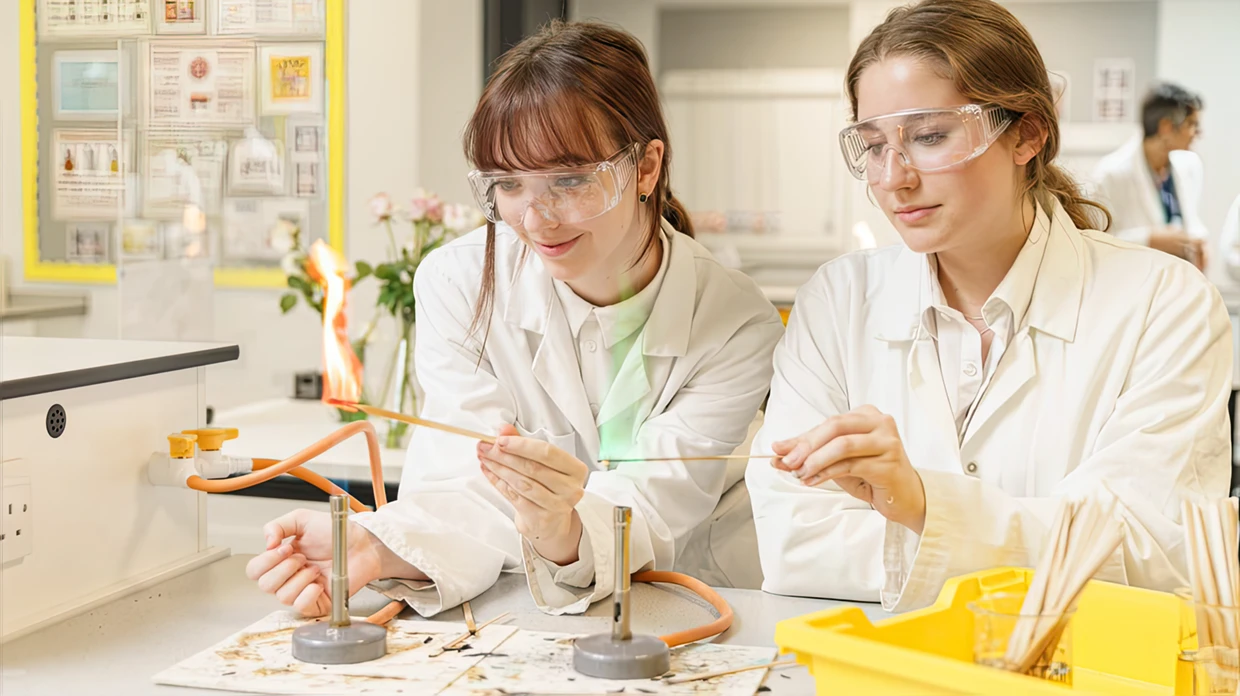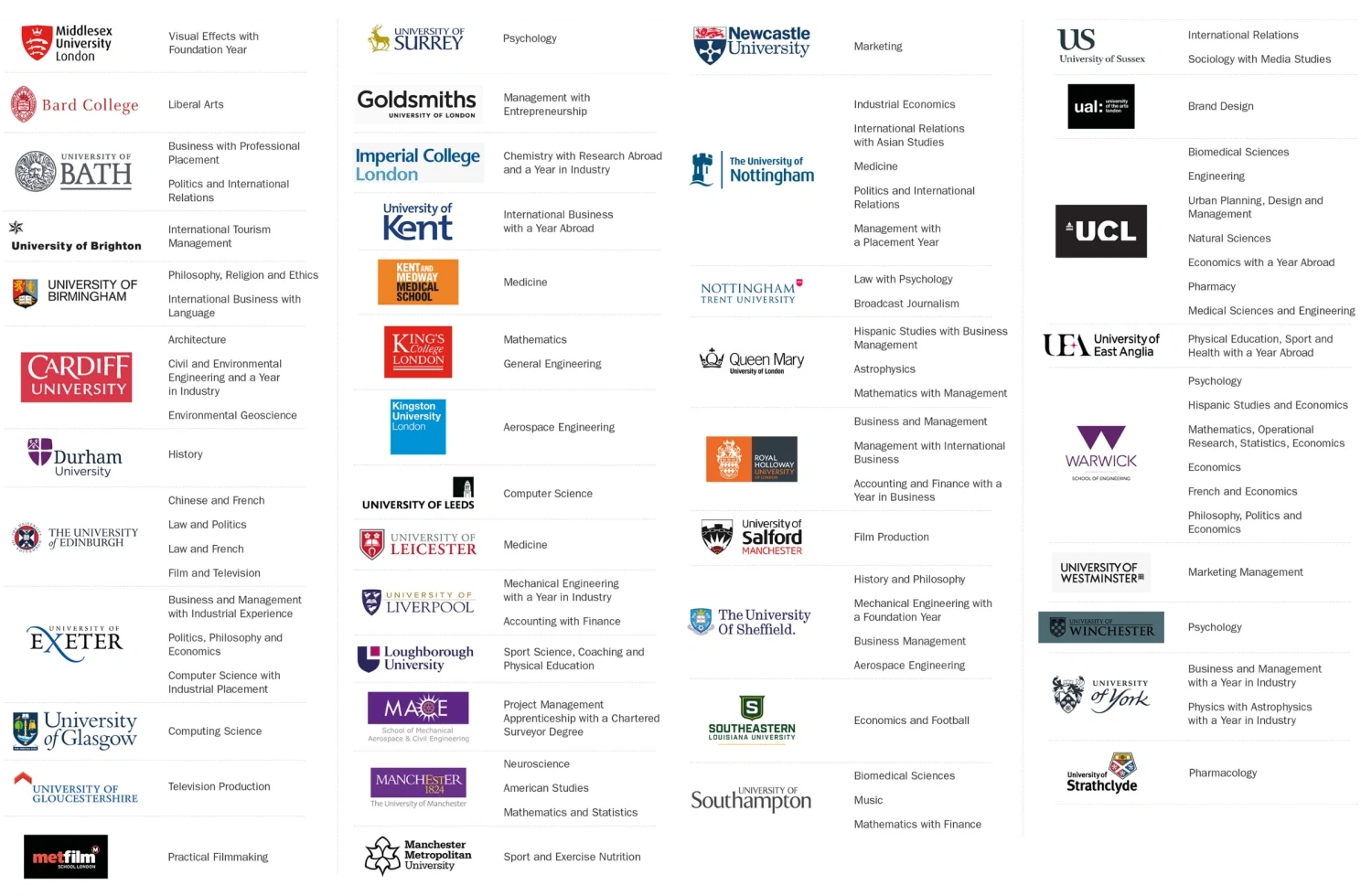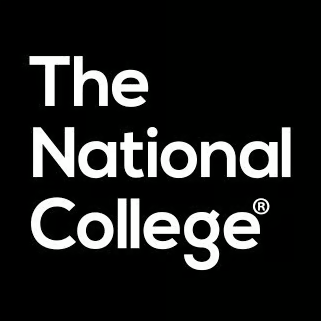A-level (Advanced Level qualification) courses are the ‘Gold Standard’ qualification for top universities in the UK, and the rest of the world. This is because they are a great indication to employers and higher education institutions (universities) that you’ve studied a subject thoroughly.
The A-Level program is perfect for students who already know exactly what they want to study and want to take that passion to the highest academic level. You can pick any combination of three or four subjects. You’ll receive all the guidance and support you need as you choose your classes so you will end up with a timetable that lines up with the degree you intend to pursue at university and your career goals. Co-curricular activities, university advising sessions and IELTS preparation are also key elements of EF Academy’s A-Level program.
A levels allow a student to study their chosen subjects at a greater depth than other qualifications. It means students can choose 3 (occasionally 4) subjects which really interest them and ones they wish to pursue. This affords greater subject knowledge before a student moves to their next stage in life.
Great grades and exam results are an important part of a strong university application. Exam preparation is a fundamental part of an education at Royal Russell School. From one-on-one sessions with teachers and your Pathway Manager, to regular study groups and TOEFL/IELTS classes on the weekends, we do everything we can to help you prepare for exams so you can send universities a stellar transcript.
This course is for academically strong students who want to progress to the UK’s very best universities, including Oxford and Cambridge.
All our teachers are subject specialists. Many hold a second degree or equivalent qualification, including PhD.
You will have regular personal progress testing and skills analysis. Dedicated professional support teams are always available for help and advice.
Small class sizes, taught by highly engaging and talented staff. You will have plenty of one-to-one contact with your teacher.

A-Level are designed to move you a step closer to your future goals. Royal Russell offer unique study programmes focused on providing you with the latest skills, experiences and qualifications to enable you to pursue a career or University degree in a particular area of interest.
You will need to choose a minimum of 3 or 4 A-Level subjects. It is important when choosing your A-Level combinations to choose the right subjects for the career that you will want to pursue.
• at least five GCSEs at grades 9 to 4/A* to C.
• at least grade 6 in the specific subject(s) you want to study.
The A Level course lasts 2 years. Students choose 4 subjects in the first year (AS Level), then specialise in three of those in the second year.
A-level Art and Design
A-level Biology
A-level Business
A-level Chemistry
A-level Computer Science
A-level Design and Technology
A-level Drama and Theatre
A-level Economics
A-level English Language
A-level English Literature
A-level Mathematics
A-level Media Studies
A-level Geography
A-level History
A-level Foreigh Languages
A-level Physics
A-level Politics
A-level Philosophy
A-level Music
A-level Music Technology
A-level Photography
Listen to the interviews with various students involved in the A Level education in Royal Russell school. The students will share their experiences, their motivation and why they think their involvement is beneficial for the organisation with you.

The three A levels, alongside clear guidance and support from the School’s Careers Team, will allow students to choose the subject degree and university destination from a position of strength.
Should a student not be clear about what they want to study at degree level, the skills and content acquired through studying A levels are highly valued by Higher Education. A very wide range of degree options will still be available for the vast majority of A level choice combinations.
Alongside greater subject depth, the A level course is structured to allow a student to develop a range of skills which are highly valued by Higher Education and Employers:
• Independent Research.
• Presentations.
• Collaborative work (research, testing, discussion, presentation etc).
• Work to timed pressure.
• Coursework (not all subjects).
• The A level courses conclude with final examinations.
• There is the possibility of sitting A/S examinations* (usually halfway through the course).
• Many subject courses include either: coursework/practical work/oral exams as part of the package in which a student will reach their final grade.
This allows the school to opt for the board which delivers the syllabus deemed best suited to the students. Boards offer iA levels (international A levels) which are specifically designed for students who do not have English as their first language. These qualifications carry exactly the same weight as A levels and treated as such by all Higher Education institutions and employers.
The iA level from some boards (CAIE, for example) offers AS levels* as part of the overall A level. This allows the student to take a percentage of their qualification halfway through their course. A student can assess their progress as the results are released two months after sitting the AS levels. Should the result(s) be strong (as, hopefully, they will be) it means there is less pressure on the student for the terminal examinations.
The AS results can be submitted in the university application process. Should the result(s) not be as strong as desired, the student can resit these papers at the end of the course with no disadvantage to their overall A grade(s) or university/workplace application(s).
The standard entry requirement for many UK University courses is either: A-Levels, International Baccalaureate, or your own Country’s equivalent certificate(s). UK Universities vary in the pass grades and/or number of subjects they require; and for specific courses you may need to have passed certain subjects.




